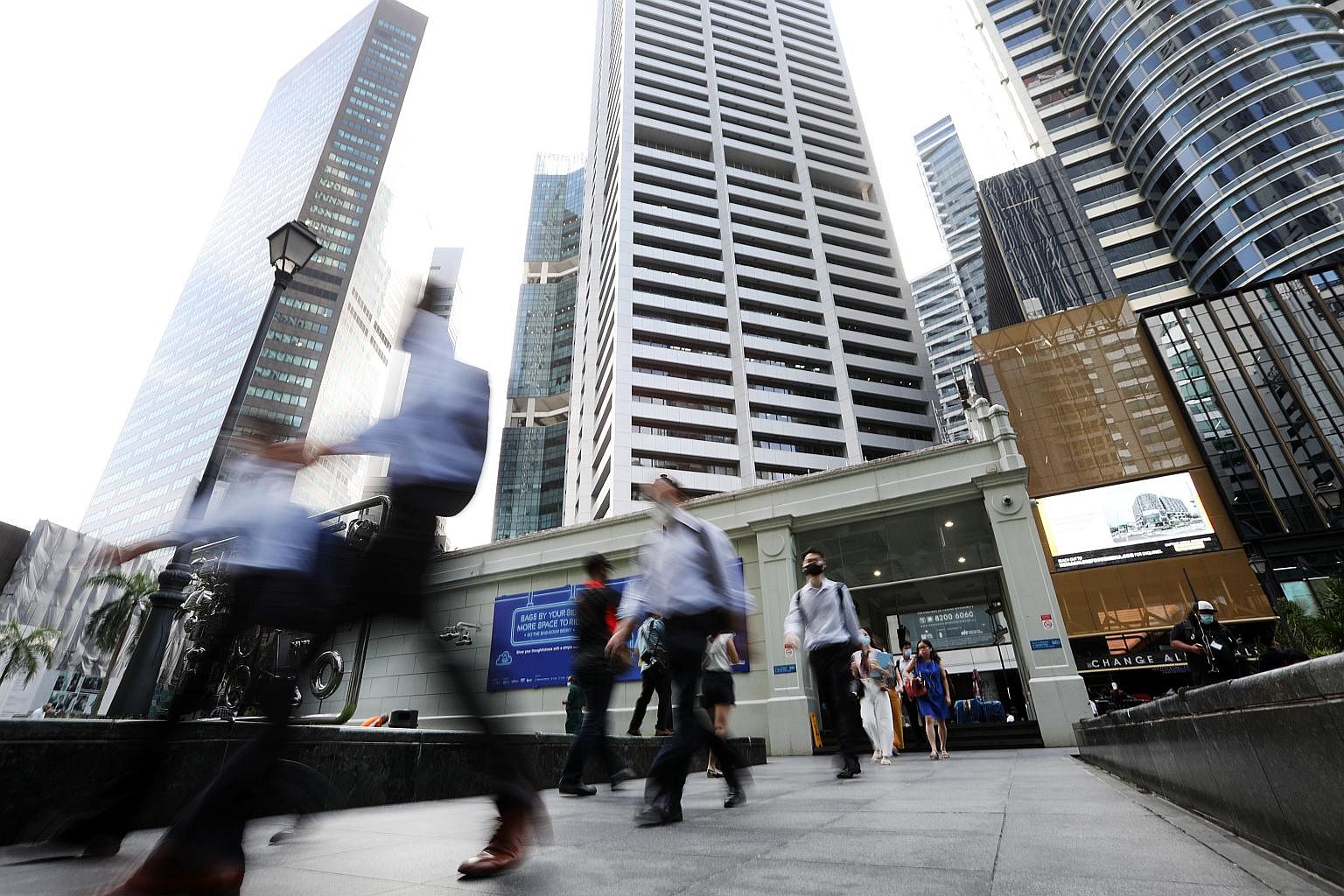Competition between local and foreign PMEs not zero-sum game, S'pore needs to find right balance: Ong Ye Kung
Sign up now: Get ST's newsletters delivered to your inbox

The best way to advance the interest of Singaporeans is not to swing to an extreme position, but to strike a careful balance and make adjustments if it gets skewed, said Mr Ong Ye Kung.
PHOTO: LIANHE ZAOBAO
SINGAPORE - The number of Employment Pass (EP) holders in Singapore has increased from 65,000 in 2005 to 177,000 in 2020.
This translates to an annual growth rate of just under 7 per cent, and an increase of 112,000. In comparison, the number of local professionals, managers and executives (PMEs) grew by more than 380,000 in the same period.
Disclosing these statistics in a ministerial statement on Tuesday (July 6), Health Minister Ong Ye Kung acknowledged that there are trade-offs that come with having an open economy, such as greater competition from foreign PMEs.
But the numbers underline an important point - that competition between foreign and local PMEs is not a zero-sum game, he said.
"In fact, the converse is often true. By combining and complementing local and foreign expertise, we can attract more investments and create many more good jobs and career choices for Singaporeans," he added.
"There is a trade-off at play here: many jobs, strong competition, or few jobs, no competition. We need to find the right balance where there are more jobs, some competition."
Mr Ong said the best way to advance the interest of Singaporeans is not to swing to an extreme position, but to strike a careful balance and make adjustments if this balance has become skewed.
He cautioned against mistakenly blaming free trade agreements (FTAs) and the Singapore-India Comprehensive Economic Cooperation Agreement (Ceca) for the difficulties faced by local PMEs.
This is something that the Progress Singapore Party (PSP) has done, by saying that Ceca and FTAs have taken jobs away from Singaporeans, and harmed the country's economy, he said.
"Unfortunately, they have politicised FTAs, and they have turned FTAs into weapons to attack the government. Their claims are totally incorrect," said Mr Ong, adding that these claims have stoked xenophobic sentiments among Singaporeans, and could end up hurting the economy.
"If someone promises you more jobs, no competition from foreigners, he is selling you snake oil. It is not possible. It cannot be on any government's policy menu," he stressed.
The ministerial statements by Mr Ong and Manpower Minister Tan See Leng were in response to questions on FTAs, Ceca and foreign PMEs filed by PSP Non-Constituency MPs Leong Mun Wai and Hazel Poa, as well as other MPs including Mr Saktiandi Supaat (Bishan-Toa Payoh GRC), Mr Patrick Tay (Pioneer) and Mr Liang Eng Hwa (Bukit Panjang).
Mr Ong said foreign PMEs help cushion the impact on the local workforce when times are bad, noting that foreigners bear the brunt of job losses during a downturn.
From April 2020 to April this year, the number of EP holders dropped by about 21,600, while the figure for S Pass holders fell by about 26,800.
On the other hand, local employment has been stable. The unemployment rate for local PMEs in June 2020 was 2.9 per cent, he noted, even though this was immediately after the circuit breaker.
The resident unemployment rate in September 2020 was 4.8 per cent, and came down by 1 percentage point to 3.8 per cent in May this year.
"Without the foreign buffer, when our economy ran into trouble, the situation would have been much worse. Singaporeans would have lost many more jobs," said Mr Ong.
He added that Singaporeans enjoy greater security of employment compared with EP and S Pass holders with help from measures such as the Jobs Support Scheme.
"So when Mr Leong Mun Wai said in his Facebook post that we need to recoup a few tens of thousands of jobs from foreign work pass holders, you may not know that we have already done so. This always happens in a downturn."
Profile of PMEs
Foreign PMEs may also be concentrated in certain sectors, and from certain countries of origin. Indeed, as Singapore's digital economy and its needs for tech talent grew, more PMEs from India have entered Singapore through its EP framework, Mr Ong said.
"And when the concentration happens in areas like Changi Business Park, some may feel that we have lost a part of Singapore," he added, noting that MPs have raised this concern. "We are taking this seriously and studying what we can do to lessen the problem."
Dealing with excessive concentration has to be part of a careful balancing act, he said, stressing the solution to this is not a "straightforward matter of chopping up the operations of a company here".
"We don't want to unintentionally cause the whole investment to move elsewhere. This will hurt even more Singaporeans," he said.
On unfair hiring practices, he said these may be taking place at the company level, with department heads preferring to hire foreign PMEs - even PMEs from certain countries.
"This is not right. Whatever system we set up, there will be some abuses. We must tackle the abuses when they occur as swiftly as possible, while continuing to adopt sensible economic policies that are good for Singapore and Singaporeans," he said.
The Ministry of Manpower takes a strong stance against such discriminatory practices and has been taking enforcement action against errant employers, together with tripartite partners, Mr Ong added.
These underlying reasons for the difficulties faced by PMEs have to be explained so that Singaporeans know what it means for the country in terms of public policy choices, and how it can most effectively address the challenges.
"If we mistakenly blame FTAs and Ceca for these problems, our responses would be disastrously wrong and we would make our problems worse," said Mr Ong.


